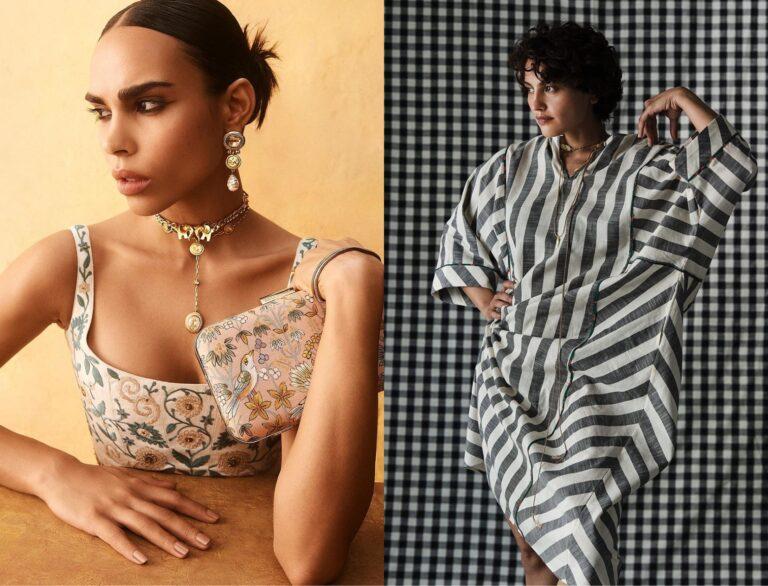During my graduation years, I didn’t mind indulging in hoarding clothes. Oblivious to the environmental impact of my actions, I was heavily into ‘fast fashion’ back then. But it wasn’t until I was introduced to sustainable fashion or ethical fashion during my master’s at NIFT– Oh, what an eye-opener it was!
Learning about the toll the fashion industry was taking on the environment shook me to the core. The realisation of the immense greenhouse gas emissions, the unfair labour practices, and the gallons of water usage made me a bit mindful of my consumption habits. However, finding the right balance between fashion and ethical practices led me to a crossroads.
Then I went on a quest to find brands that prioritised sustainability and ethical practices. Fortunately, my journey led me to discover amazing brands that showed me that it’s possible to enjoy fashion while being environmentally and socially responsible. If you are also looking for such brands then you need to check out my curated list of fashion brands that are changing the industry.
1. Anita Dongre:
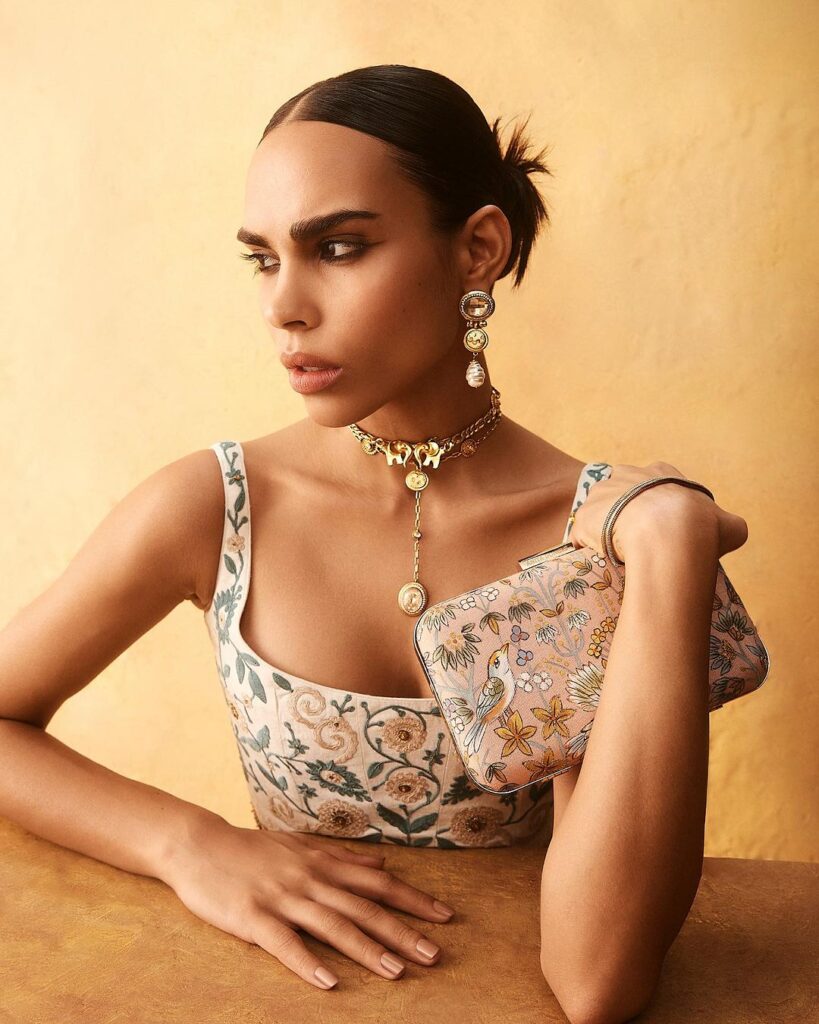
Anita Dongre is renowned for her commitment to sustainable and eco-friendly fashion. She emphasises on artisanal craftsmanship and traditional techniques in her designs, which often feature hand embroidery, block printing, and intricate detailing. Dongre’s brand promotes ethical production practices, including fair wages and safe working conditions for artisans and workers. She also prioritises sustainable materials, such as organic cotton and eco-friendly dyes, and advocates for environmental conservation and community empowerment.
2. Upasana Auroville:
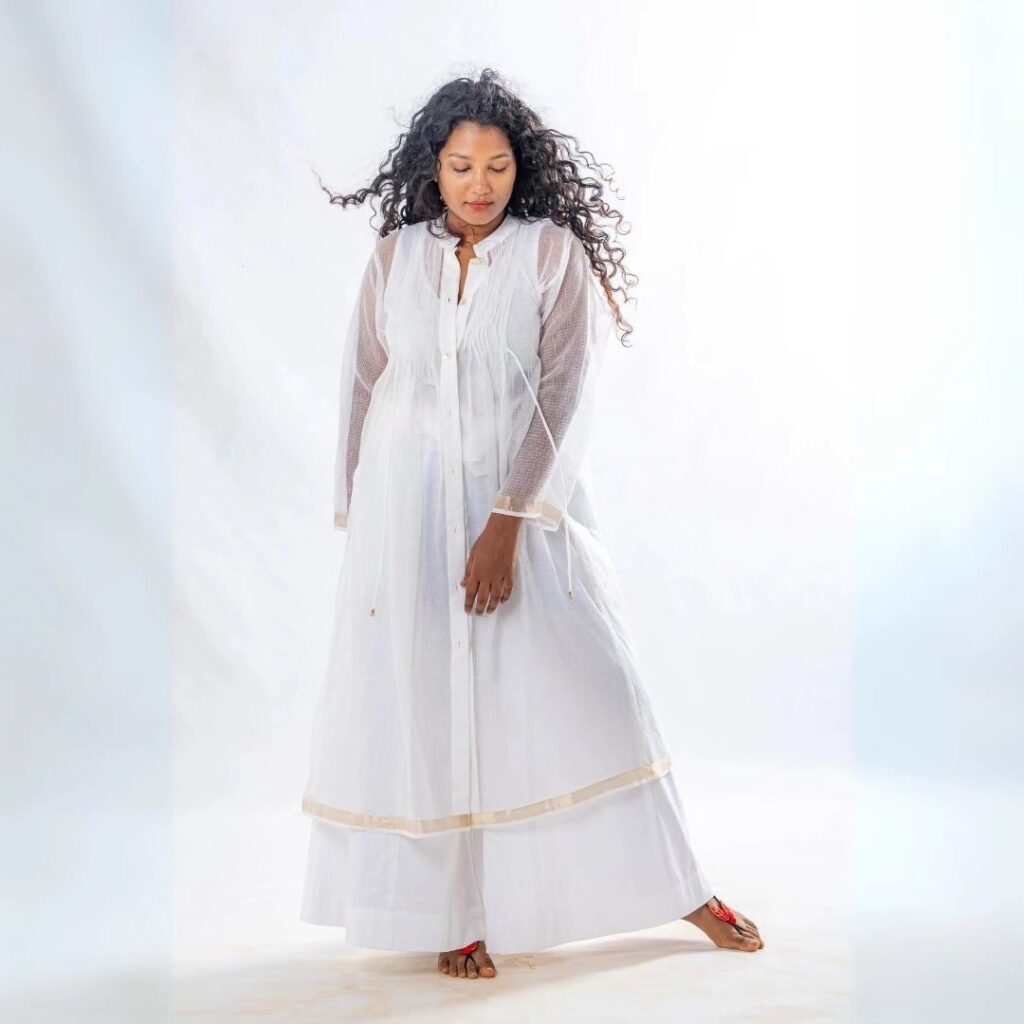
Upasana Auroville is dedicated to promoting sustainable livelihoods through its focus on organic, handwoven textiles and ethical production processes. The brand collaborates closely with local artisans and farmers, providing them with fair wages, training, and resources to support their craft and communities. Upasana Auroville’s collections feature contemporary designs made from natural fibers such as organic cotton, khadi, and bamboo, showcasing the beauty and versatility of handcrafted textiles while championing social and environmental sustainability.
3. Bhusattva:
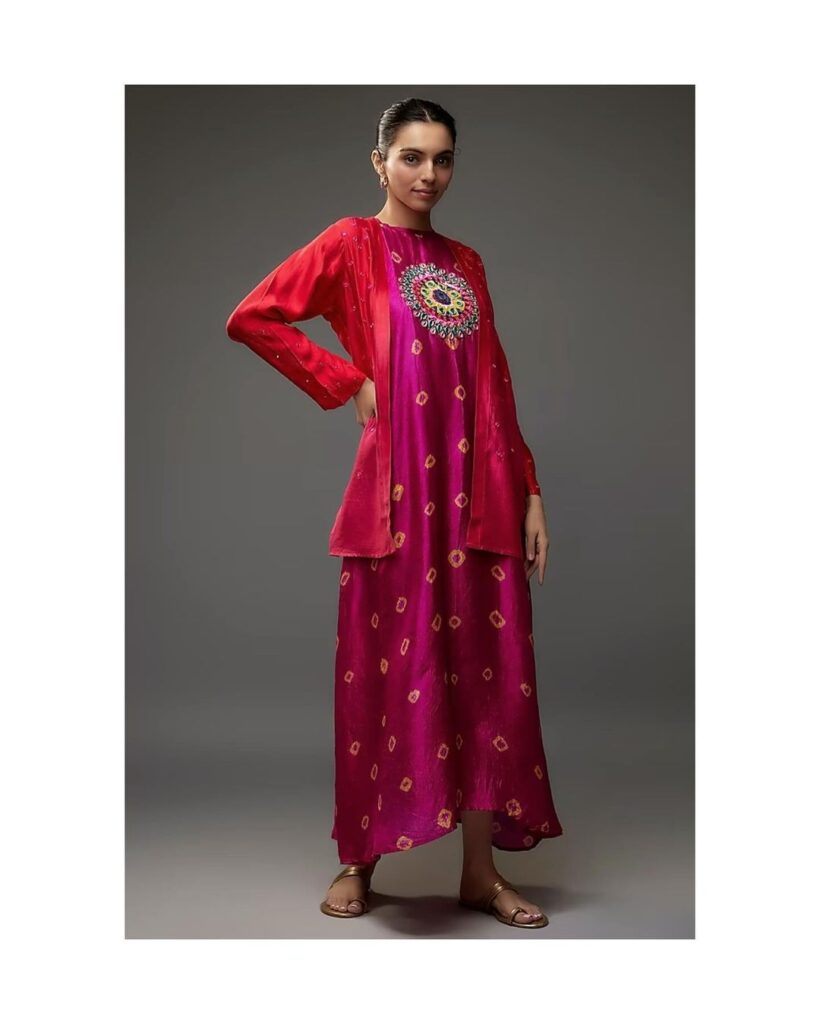
Bhusattva is committed to creating sustainable, eco-friendly, and cruelty-free fashion that prioritizes environmental and social responsibility. The brand uses natural fibers such as organic cotton, hemp, and bamboo, along with eco-friendly dyes and production processes, to minimise its environmental footprint. Bhusattva also advocates for animal welfare by using cruelty-free materials and avoiding the use of leather, fur, or other animal-derived products in its collections. Additionally, the brand promotes fair labor practices and transparency throughout its supply chain, ensuring that workers are treated ethically and equitably.
4. Doodlage:
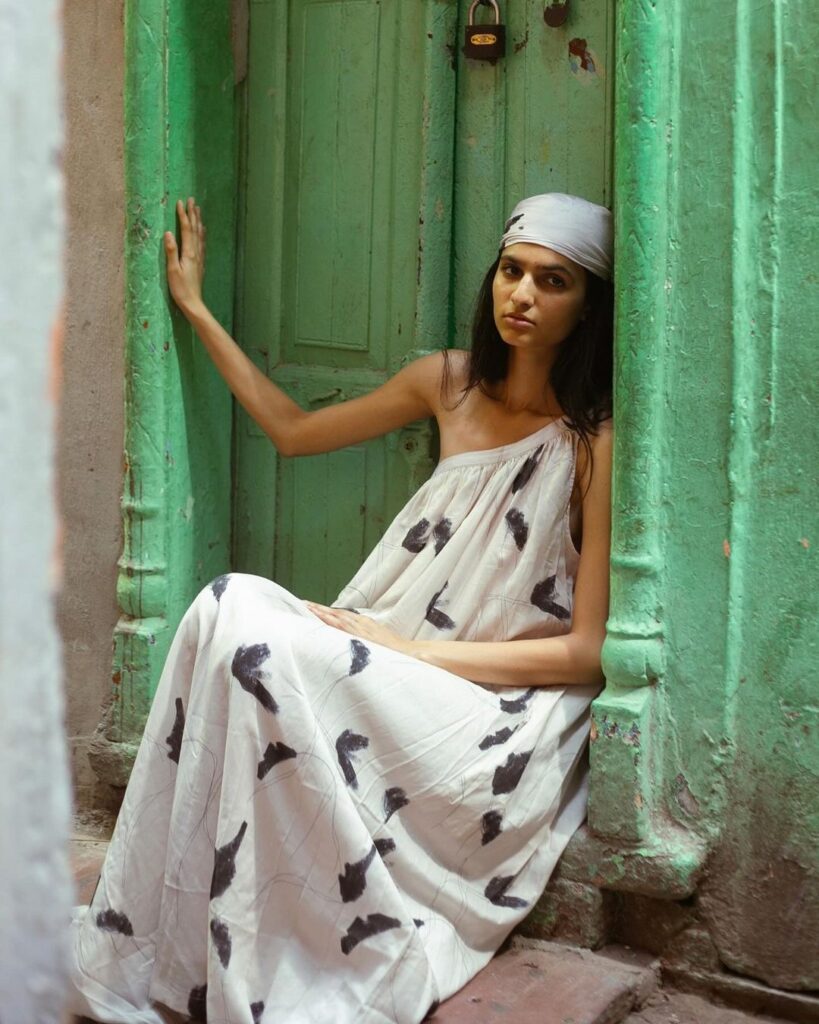
Doodlage stands out for its innovative approach to sustainability, focusing on upcycling pre-consumer textile waste to create unique, sustainable fashion pieces. The brand sources leftover fabric scraps from garment factories and repurposes them into stylish clothing and accessories, minimising waste and reducing environmental impact. Doodlage’s designs are characterized by their patchwork aesthetic, playful textures, and one-of-a-kind appeal. The brand also prioritizes ethical sourcing and production, employing local artisans and craftsmen to handcraft each piece with care and attention to detail.
5. No Nasties:
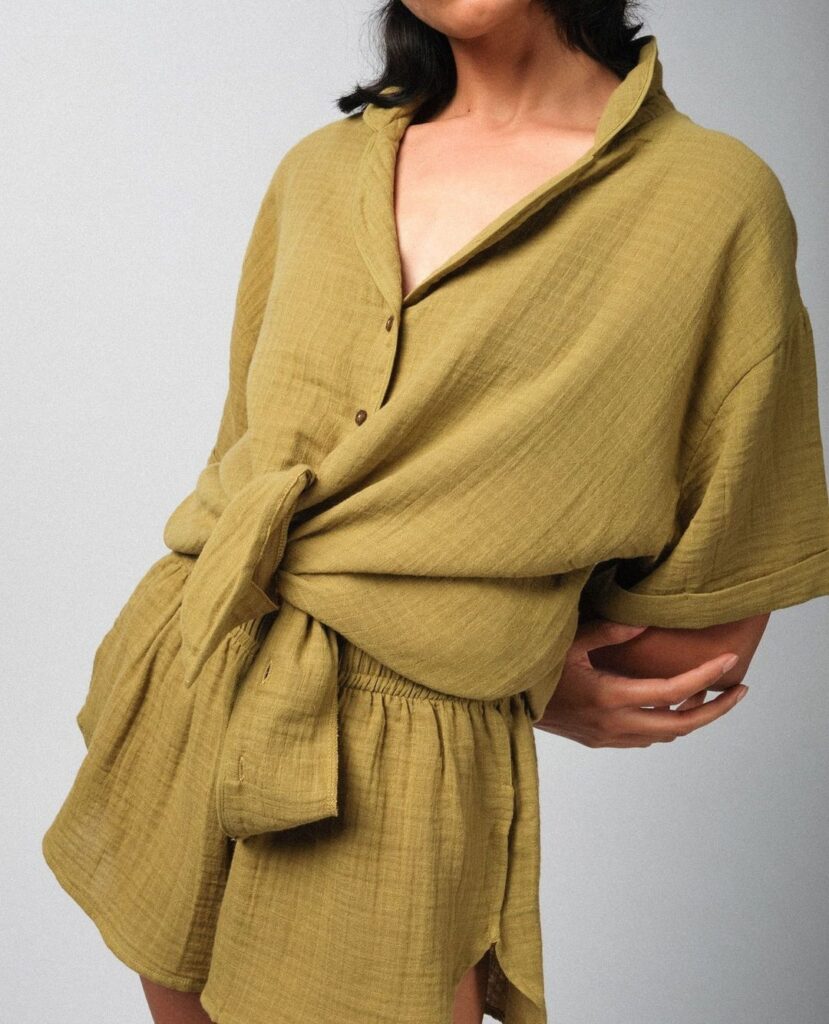
No Nasties is dedicated to producing organic, fair trade cotton clothing with a commitment to transparency and ethical practices throughout its supply chain. The brand works directly with farmers in India to source organic cotton, ensuring that they receive fair wages and support for their sustainable farming practices. No Nasties’ collections feature simple, timeless designs made from high-quality organic cotton, free from harmful chemicals and pesticides. The brand also prioritises ethical manufacturing processes, including safe working conditions and fair wages for garment workers, while advocating for social and environmental justice in the fashion industry.
6. Khara Kapas:
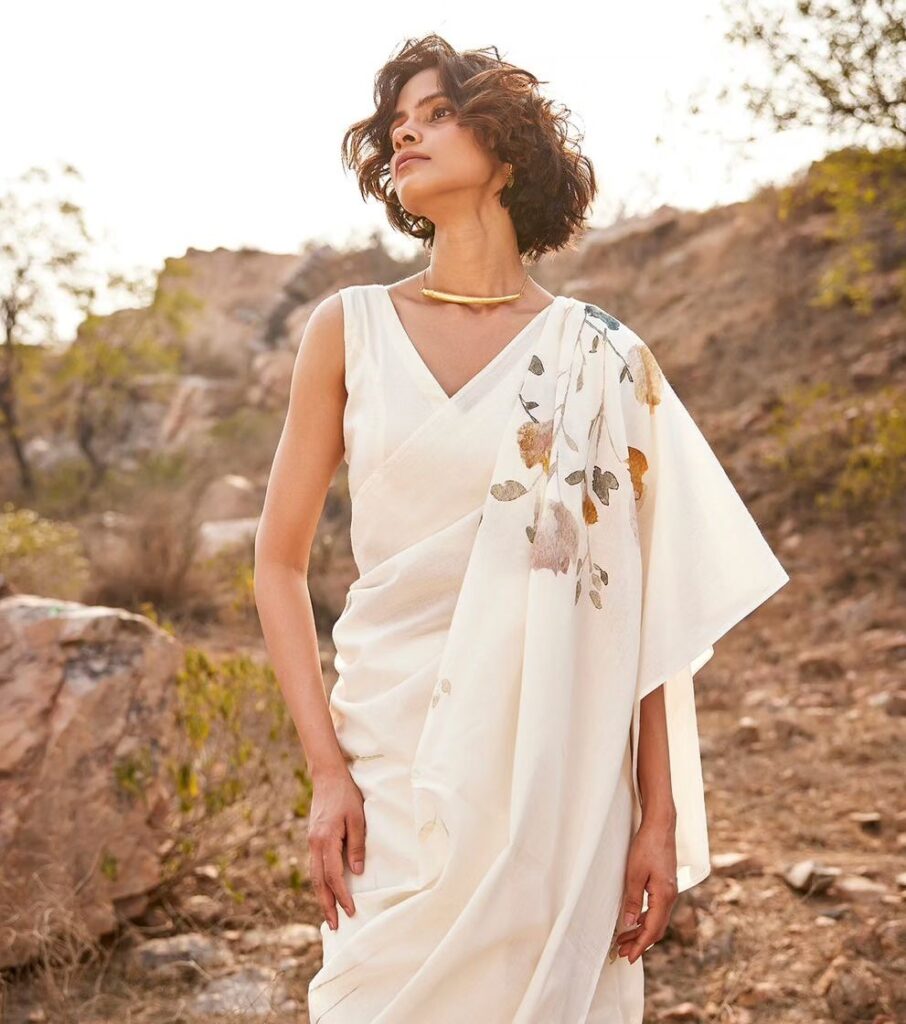
Khara Kapas, which means ‘pure cotton’ in Hindi, focuses on creating sustainable, handcrafted clothing using organic cotton. Their designs are characterised by their simplicity and elegance, with an emphasis on natural fabrics and earthy tones. Khara Kapas partners with local artisans and weavers to ensure fair wages and ethical production practices while also prioritising environmental sustainability.
7. Nicobar:
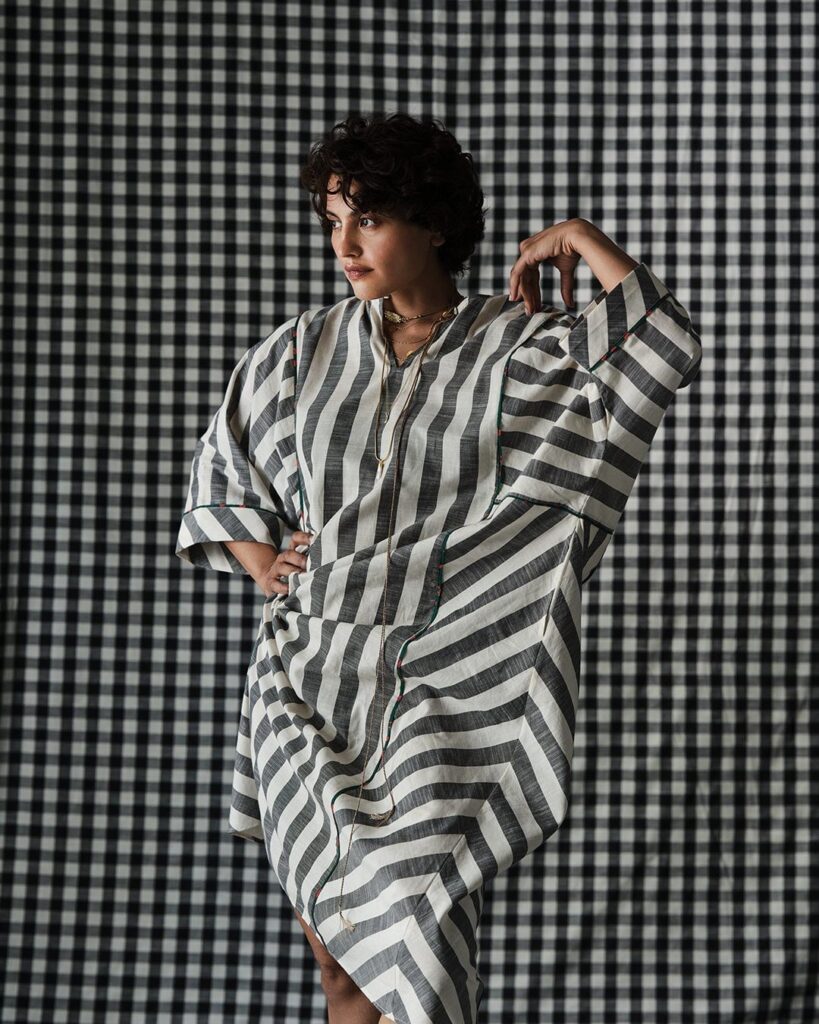
Nicobar offers a contemporary take on Indian fashion and lifestyle products, blending modern aesthetics with traditional craftsmanship. Their collections feature a mix of clothing, accessories, and home decor items, all crafted from natural materials such as cotton, linen, and bamboo. Nicobar emphasises quality, longevity, and versatility in their designs, encouraging mindful consumption and a connection to Indian heritage.
8. Péro:
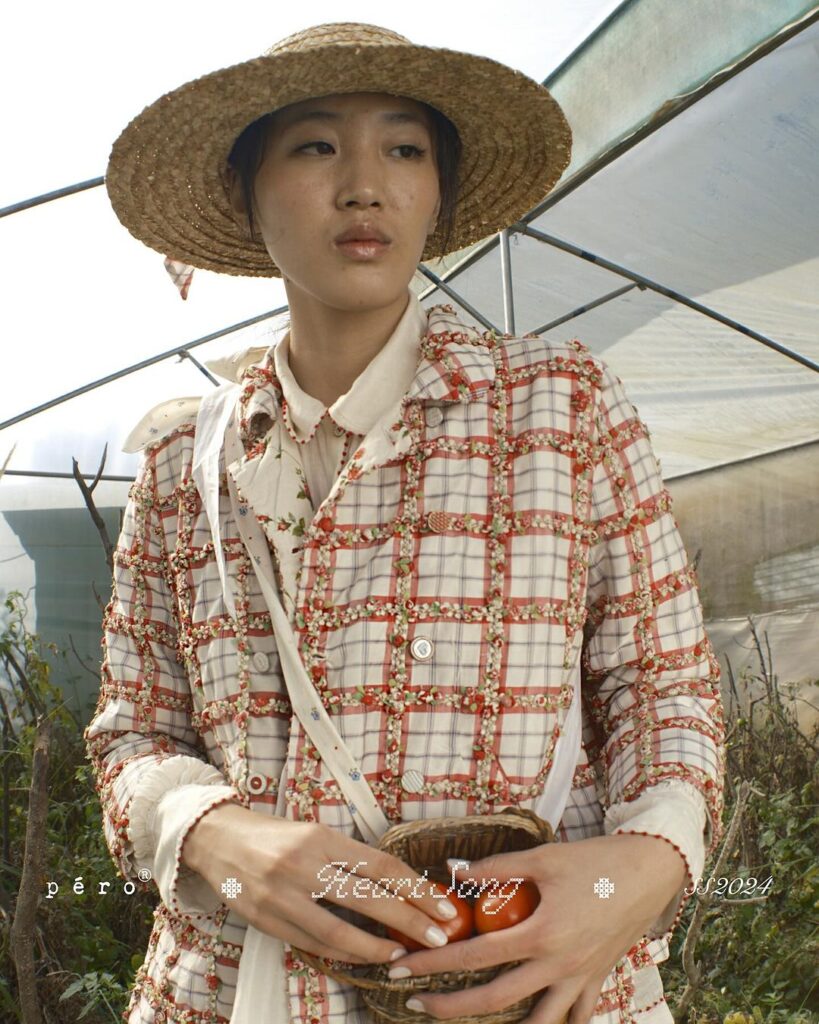
Péro celebrates the artistry of handcrafted fashion through its unique designs and meticulous attention to detail. Each Péro garment is made by skilled artisans using traditional Indian techniques such as hand weaving, embroidery, and block printing. The brand’s collections often feature whimsical patterns, playful textures, and a vibrant color palette, reflecting its commitment to preserving and promoting India’s rich textile heritage.
9. Tantuvi:
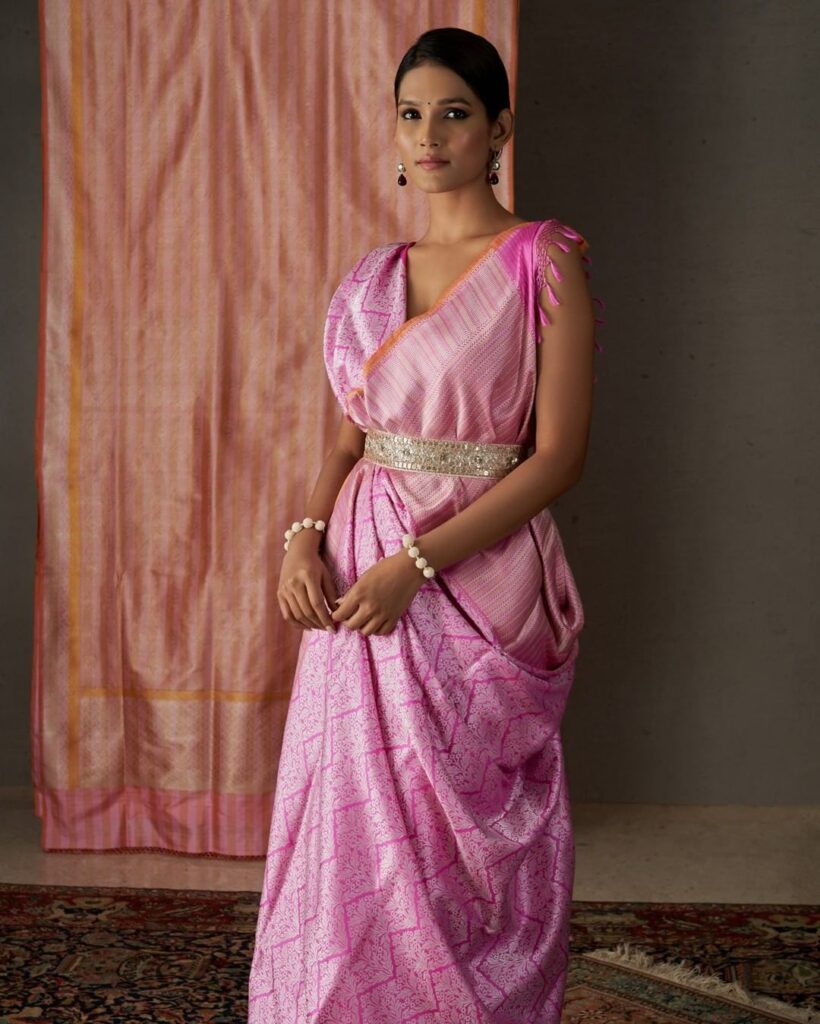
Tantuvi is dedicated to preserving and reviving traditional Indian textile techniques, particularly those of the southern region of India. The brand specialises in handwoven fabrics made from natural fibers such as cotton, silk, and linen, showcasing intricate patterns and vibrant colors. Tantuvi collaborates closely with local weavers, providing them with fair wages, training, and resources to ensure the sustainability of their craft and the communities they belong to.
10. Ethicus:
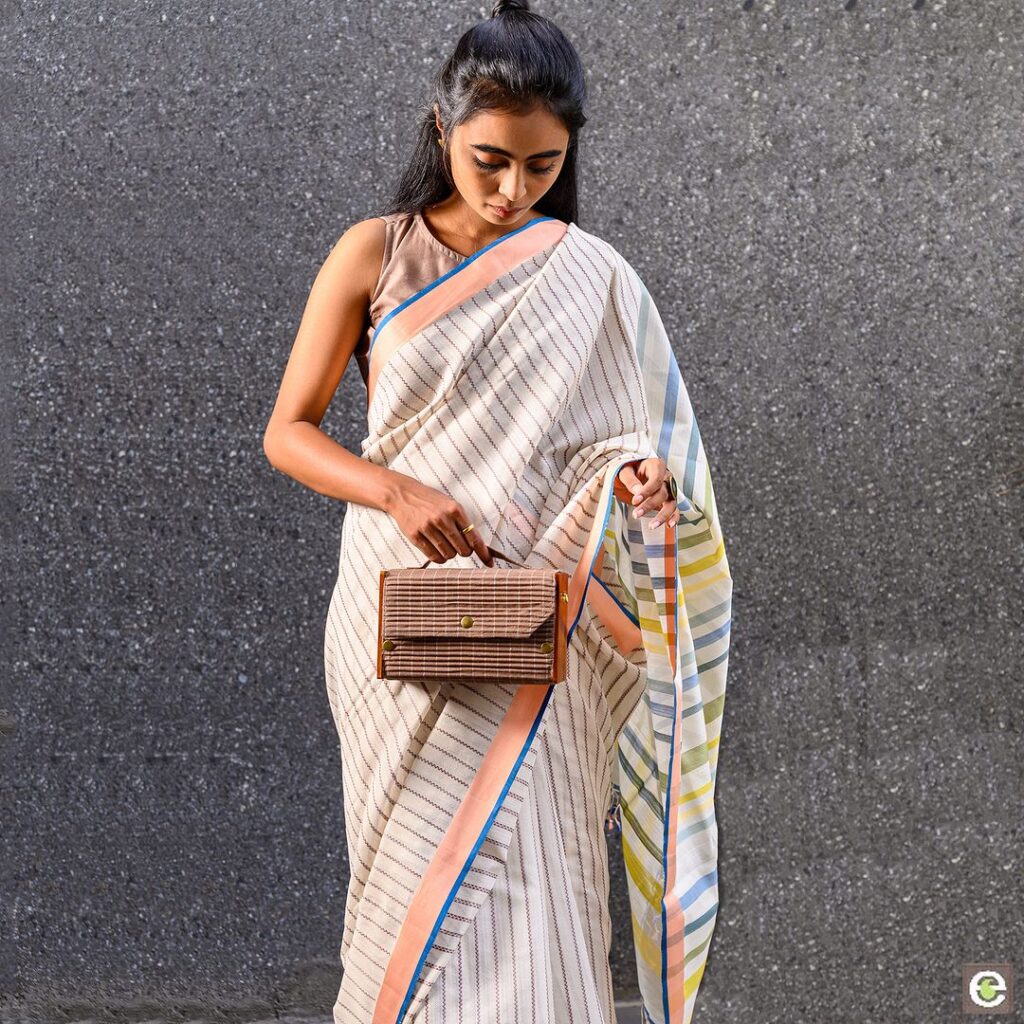
Ethicus is renowned for its exquisite collection of organic sarees, meticulously crafted from handpicked cotton grown without the use of synthetic pesticides or fertilisers. The brand’s sarees feature traditional Indian motifs and patterns, woven by skilled artisans using age-old techniques passed down through generations. Ethicus prioritises transparency and fairness in its supply chain, working directly with farmers and weavers to promote ethical practices and empower rural communities.
These Indian fashion brands undoubtedly combine traditional craftsmanship with ethical practices to create timeless and socially responsible pieces.
Featured Image: Instagram
